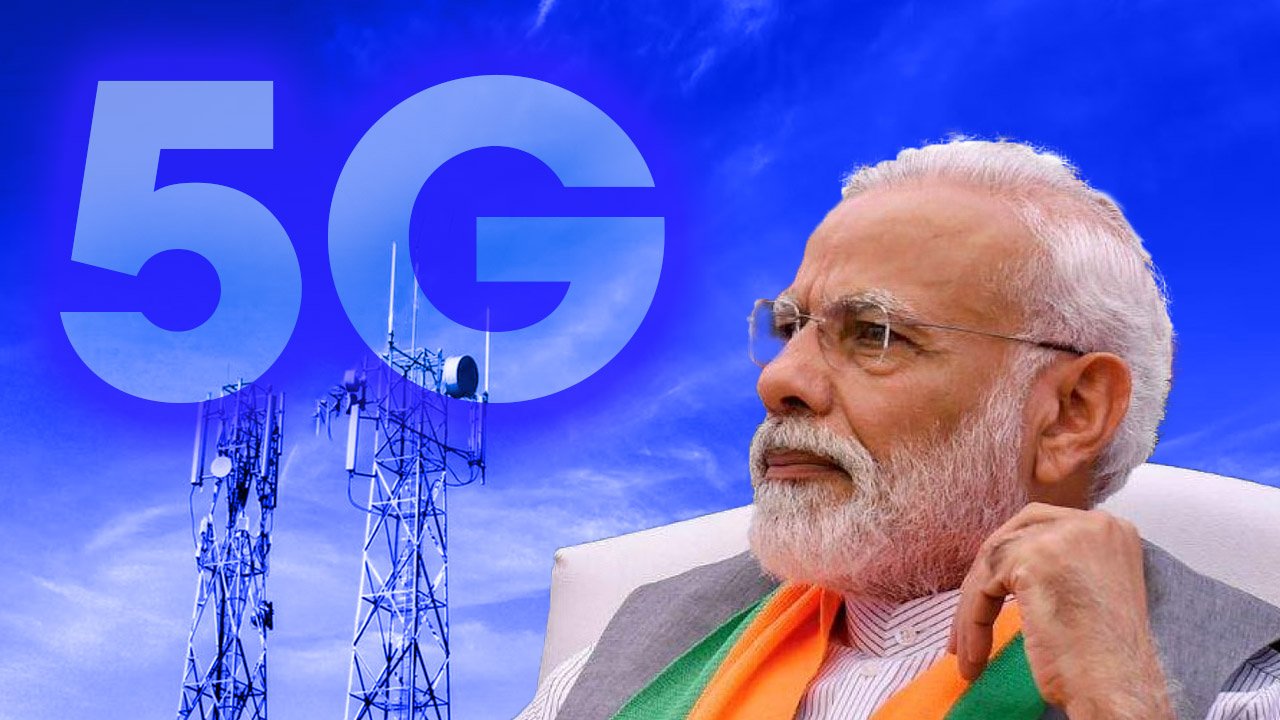Introduction:
June 8, 2023, will forever be etched in the annals of India’s technological advancement as a historic day. On this momentous occasion, Prime Minister Narendra Modi inaugurated the long-awaited 5G network in the country, marking a new era of connectivity and ushering in unprecedented possibilities for innovation, economic growth, and social development. The launch of 5G in India holds tremendous promise, not only for revolutionizing the way we communicate but also for transforming various sectors, including healthcare, education, manufacturing, and agriculture.
The Significance of 5G:
Rajkotupdates.news:a-historic-day-for-21st-century-india-pm-modi-launched-5g-in-india, Fifth-generation wireless technology, or 5G, is the next leap in mobile communications, surpassing the capabilities of its predecessor, 4G. With speeds up to 100 times faster than the current 4G networks, 5G offers ultra-low latency, high bandwidth, and massive device connectivity. This revolutionary technology opens doors to a wide range of applications, such as autonomous vehicles, smart cities, augmented reality (AR), virtual reality (VR), Internet of Things (IoT), and much more.

5G Benefits for India:
The launch of 5G in India is expected to fuel significant advancements across various sectors. Improved connectivity and higher speeds will transform industries, enabling greater automation, efficiency, and productivity. The following sectors stand to benefit immensely from the advent of 5G:
- Healthcare: Telemedicine and remote healthcare services will be greatly enhanced with 5G, enabling doctors to perform real-time consultations, remote surgeries, and accurate diagnostics using augmented reality. Additionally, IoT-enabled devices can monitor patients’ vital signs in real-time, facilitating personalized and timely medical interventions.
- Education: 5G will revolutionize the education sector by enabling immersive learning experiences through VR and AR. Students will have access to virtual laboratories, interactive lectures, and collaborative platforms, irrespective of their geographical location. This technology will bridge the digital divide, ensuring quality education for all.
- Manufacturing and Industry 4.0: 5G will propel the Fourth Industrial Revolution in India, where factories and industries become interconnected and smart. With ultra-low latency, 5G will enable real-time monitoring and control of processes, leading to improved efficiency, reduced downtime, and enhanced safety. Industrial IoT applications will optimize supply chains, predictive maintenance, and energy management.
- Agriculture: Farmers will leverage 5G to deploy smart farming techniques, including precision agriculture, soil monitoring, and drone-based crop management. With access to real-time data and analytics, farmers can make informed decisions, optimize resource utilization, and enhance crop yields.
- Smart Cities: 5G networks will lay the foundation for smart cities, where interconnected devices and sensors will monitor and manage critical infrastructure, transportation systems, and public services. This technology will enhance public safety, energy efficiency, and citizen engagement.

Government Initiatives and Future Plans:
The Indian government, recognizing the transformative potential of 5G, has taken several initiatives to support its rollout. These include the establishment of a National Mission on 5G, spectrum auctions, fostering partnerships with global technology leaders, and developing a robust policy framework for the deployment of 5G infrastructure.
Must Read=Rajkotupdates.news:emm-negative-rare-blood-group-found-in-rajkot-man-11th-such-case-worldwide
Looking ahead, the government aims to promote indigenous development of 5G technology and create a favorable ecosystem for innovation and research. Public-private collaborations and investments in research and development will further accelerate the adoption and utilization of 5G in India.
Conclusion:
The launch of 5G in India under the leadership of Prime Minister Narendra Modi marks a historic milestone for the nation. This cutting-edge technology has the potential to transform multiple sectors, improve the lives of citizens, and contribute to India’s journey towards becoming a digitally empowered society. As the nation embraces 5G, it opens up a world of possibilities that will shape India’s future and establish it as a global leader in technology and innovation.
FAQS
Q: What is 5G?
A: 5G, or the fifth generation of wireless technology, is the latest advancement in mobile communications. It offers significantly faster speeds, lower latency, and the ability to connect a massive number of devices simultaneously.
Q: What are the benefits of 5G?
A: 5G brings numerous benefits, including faster download and upload speeds, improved network reliability, lower latency for real-time applications, increased capacity for more devices connected simultaneously, and the ability to support emerging technologies like IoT, AR, and VR.
Q: How will 5G impact different sectors?
A: 5G will have a transformative impact on various sectors. In healthcare, it will enable remote surgeries, real-time consultations, and IoT-enabled patient monitoring. In education, it will facilitate immersive learning experiences through VR and AR. Industries will benefit from increased automation, efficiency, and real-time monitoring. Agriculture can leverage 5G for smart farming techniques. Smart cities will be able to optimize infrastructure and services with interconnected devices and sensors.
Q: What initiatives has the Indian government taken to support 5G?
A: The Indian government has taken several initiatives to support 5G. These include establishing a National Mission on 5G, conducting spectrum auctions, fostering partnerships with global technology leaders, and developing a robust policy framework for 5G infrastructure deployment.
Q: How will 5G benefit rural areas and bridge the digital divide?
A: 5G has the potential to bridge the digital divide by providing high-speed internet access to rural areas. It will enable improved connectivity, access to online education and healthcare services, and opportunities for rural businesses to thrive in the digital economy.
Q: Are there any concerns or challenges associated with 5G deployment?
A: Some concerns related to 5G include the need for significant infrastructure investments, ensuring network security, and addressing potential health and environmental impacts. However, these concerns are being actively addressed through regulatory measures and ongoing research.





